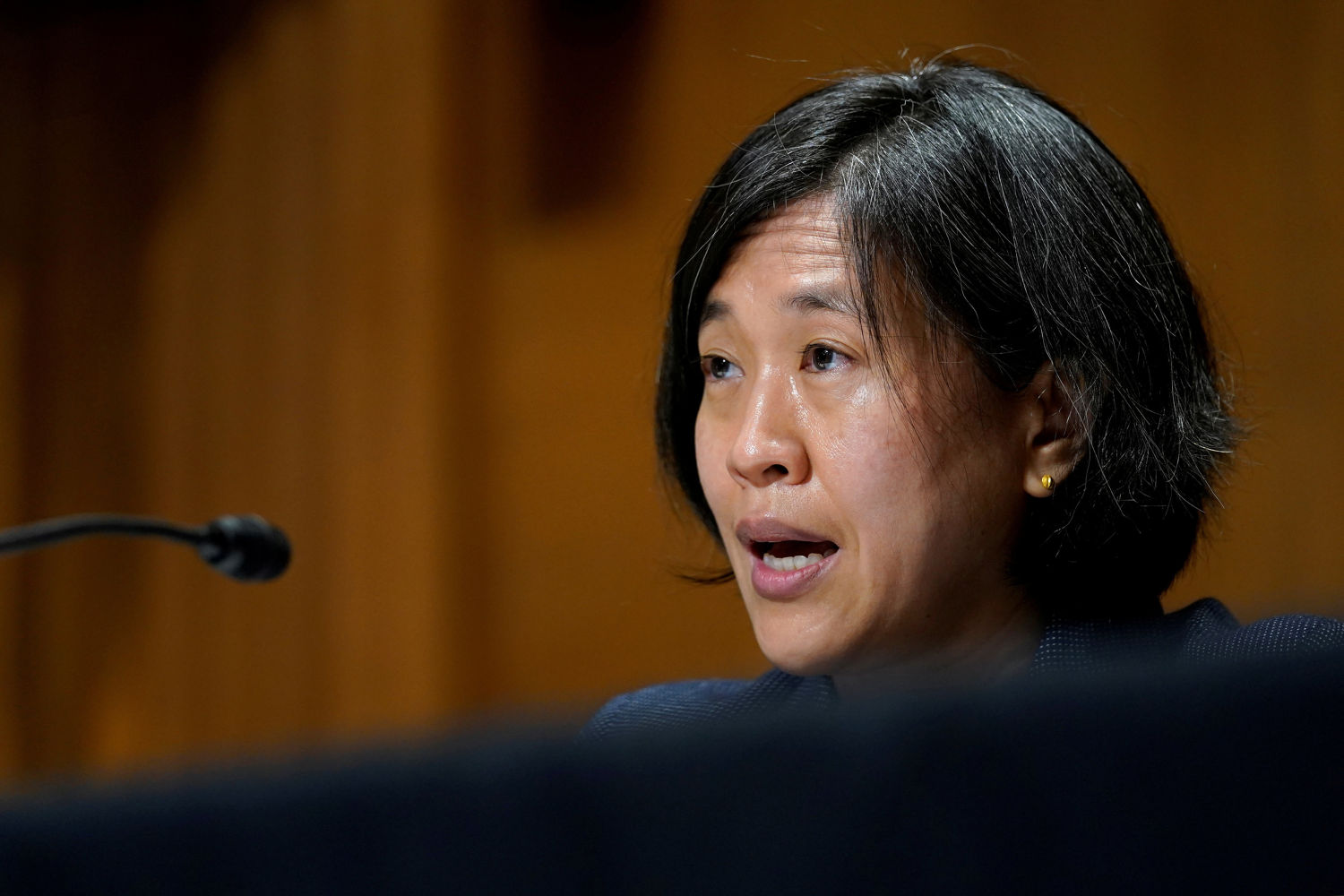(ATF) The US needs new tools to head off anti-competitive threats from China, trade representative Katherine Tai told a Congressional panel on Thursday.
Tai told a House Ways and Means Committee hearing that existing trade law tools are more aimed at protecting industries and companies after they have already been injured by illegal price dumping and subsidies or other unfair competition.
“I would really like to strengthen the trade tools that we have to address the problems we have today,” Tai said, adding that many of the US trade laws are nearly 50 or 60 years old.
US trade laws have struggled to prevent damage to the steel industry as China has built up massive amounts of production capacity over the past 20 years, Tai said, adding that Beijing’s industrial plans show it is poised to do the same in other industries.
“I think we need tools that are not just about responding to harms that we have experienced in the past, but tools that are going to anticipate where we’re going to have the same pattern of harm to allow us to get ahead of the harm, and allow us to respond as quickly as possible.”
On Wednesday, Tai called for an update to the 1962 national security trade statute that was used to impose tariffs on steel and aluminium imports.
MASSIVE SUBSIDIES
She said the US needs to address China’s massive subsidies and state-driven economic system.
Beijing’s “Made in China 2025” plan targets investments in 10 strategic industries now largely dominated by the United States, including aerospace, semiconductors and information technology, robotics, green energy and electric vehicles, agricultural machinery, pharmaceuticals and advanced materials.
The Biden administration is conducting a “top-to-bottom review” of China trade policy, including how to approach former president Donald Trump’s “Phase 1” trade deal with Beijing that expires at the end of 2021.
Last week, Tai said that the US would meet with Chinese diplomats soon to review Beijing’s implementation of the deal.
Gao Feng, a spokesperson for China’s Department of Commerce, was quoted by CCTV as saying on Thursday May 13 that officials had noted Tai’s remarks and if there was further information it would be released at an appropriate time.
Speaking at a regular press conference, Gao Feng said: “On the issue of tariffs, China’s attitude is very clear. Unilateral tariff increases are not good for China, the United States, and the world. The essence of China-US economic and trade relations is mutual benefit and win-win results. Both sides should resolve each other’s legitimate concerns through dialogue and consultation on the basis of mutual respect and equal treatment.”
There has been no comment yet on the reaction to her latest remarks, but Tai won bipartisan support in Washington recently after being nominated for her current role.
Tai formerly served as chief trade counsel of the House Ways and Means Committee, where she helped improve the US-Mexico-Canada trade agreement and secure the backing needed for its passage.
Born in the US to parents from China, Tai was raised in Washington. She graduated from Yale University and earned a law degree from Harvard Law School.
With reporting by Chris Gill and Reuters























